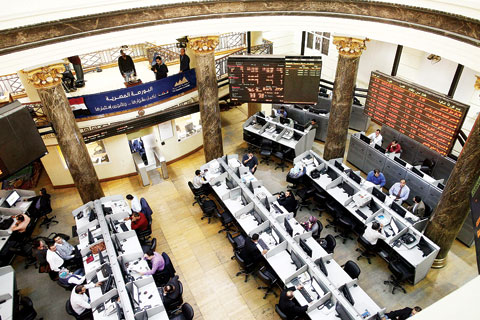Egypt’s assessment in the financial market development index within the Global Competitiveness Index (GCI) has raised contradicting critiques. Although its rank in the financial market development index has improved—from 119 with 3.23 points to 111with 3.39 points—the assessment of a number of factors in the index has been met with reservations by the Egyptian Financial Supervisory Authority (EFSA), as well as some investment managers.
Moreover, although Egypt’s rank in the financial market development index is better than its general rank (115), the Egyptian market has obtained 3.67 points, a higher assessment of the financial market development that obtained 3.39 points
EGX deserves better assessment
EFSA chairperson Sherif Samy expressed his reservation about Egypt’s rank in the ‘regulation of securities exchanges’, which retreated from 102 to 105, with the same assessment of 3.7 points. He told Daily News Egypt that EFSA issued several regulatory rules covering several aspects, such as governance and buying treasury shares and international certificates of deposit.
He added that, consequently, the Egyptian Exchange (EGX) should have been given a better assessment in terms of the regulation of securities exchanges.
EFSA surprised by higher rank in affordability of financial services
The ‘affordability of financial services’ factor has improved; Samy said that this factor addresses the cost of financing insurance, trade operations, and loan activities.
He mentioned that Egypt’s rank in that pillar has improved by 54 places (from 126 to 72) despite an increase in the interest rate, in addition to the impact of the US dollar price increase on the cost of financing.
Financial evaluation through EGX did not reflect any IPO development
Samy said that the capital market declined to position 58 instead of 55 due to the element of ‘financing through the local equity market’. This does not necessarily reflect the inability of the capital market to provide finance, as the EGX attracted a group of IPOs, such as Domty, Cleopatra Hospital, and companies that increased their capitals.
He added that the decline in ranking is related to those who work on the report’s methodology, and that other markets improved and ranked in higher positions. This element includes financing through bonds as well.
The ‘strength of the investor protection’ element moved up from position 113 with 4.4 points to 101 with 4.5 points, which reflects an improvement in protection for investors who benefit from financial services.
Evaluation did not reflect complexity of regulations
Mahmoud Selim, head of investment banking at HC Securities & Investment, said that Egypt’s evaluation in the financial market development index does not reflect the deteriorating circumstances faced by the capital market and finance in Egypt.
He added that the market registered consistency in the regulation of securities financing the local equity market and exchange evaluation, aside from a slight decline in the sequence.
Local or foreign investors are obliged to settle acquisitions worth more than EGP 100,000 through an Egyptian bank.
Leasing and factoring improvement supported financial services availability ranking
Ayman Abu Hend, direct investment manager at American Cartel Capital, said that the capital market and local financing has improved in many activities, such as non-banking financial services like leasing and factoring. There is a new legislation underway to regulate them.
Egypt’s advanced ranking in ‘financial services meeting business needs’ reflects the improvement of non-banking financial activities. This may reflect positively on the ‘availability of financial services’ in the future, for which Egypt currently ranks 129 with 3.4 points.




